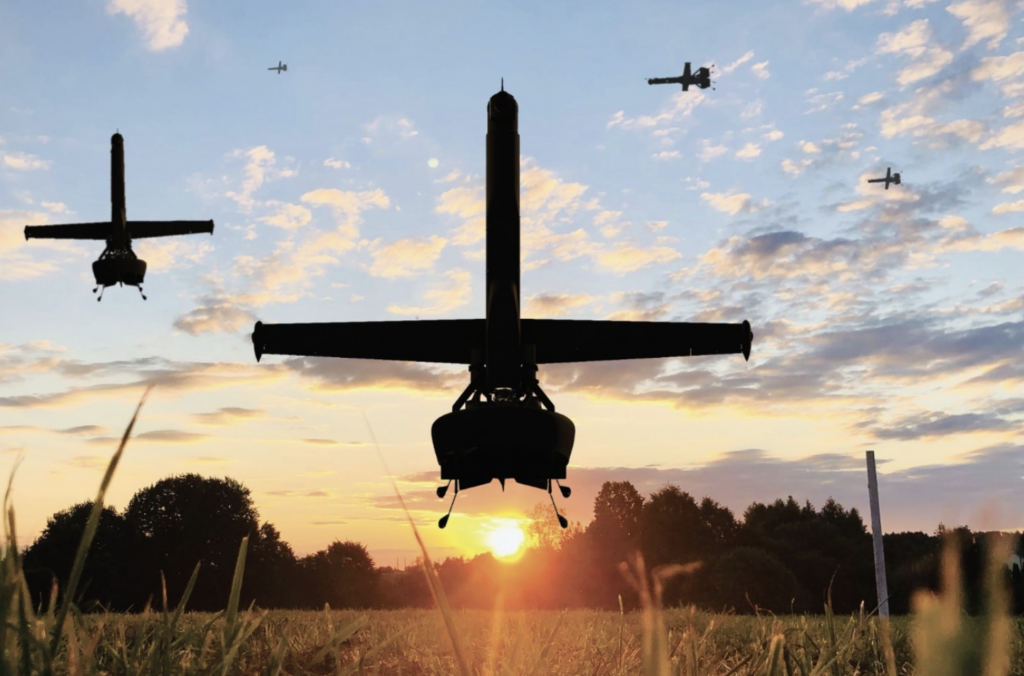
Shield AI announced the official launch of its V-BAT Teams product this week. (Photo: Shield AI)
Having recently completed successful testing and demonstrations of its artificial intelligence piloting software for drone swarms, Shield AI has launched a new product that allows the company’s V-BAT uncrewed aircraft systems (UAS) to work in teams to execute missions autonomously in GPS and communications-denied environments.
Shield AI said the V-BAT Teams product includes a modular Nvidia graphics processing unit that runs Hivemind, the company’s AI pilot. The product is located in the modular payload bay of V-BAT.
V-BAT Teams “will be on the battlefield in 2024,” Ryan Tseng, co-founder and CEO of Shield AI, said in a statement.
The AI flight software will first be used with a team of four V-BATs then doubling the number of UAS annually “for the foreseeable future,” Brandon Tseng, the company’s co-founder and president, said in a statement.
“Four V-BATs that work together in electronic warfare environments and as part of a human-machine team are an incredible force multiplier,” Tseng said. “Ultimately, V-BAT Teams, as the team size increases, give squads the combat power of a battalion, or battalions the combat power of a corps or division.”
Shield AI said the autonomous UAS teams allow for affordable, around-the-clock surveillance and targeting of “thousands of enemy assets.”
The V-BATs, at least equipped with the new Teams product, would seem a potential candidate for the Defense Department’s new Replicator Initiative, which seeks to purchase and field thousands of all-domain autonomous attributable systems during the next two years to help counter China’s military build-up.
V-BAT is a program of record. The company has said the UAS are deployed in 14 time zones and operate around the clock. The aircraft take off and land vertically but fly horizontally like fixed-wing aircraft.
In August, Shield AI completed testing of Hivemind aboard three V-BATs under a contract with the Air Force Research Laboratory’s AFWERX innovation unit. The company said at the time that the teaming technology would be ready to deploy in 2024 for use in electronically-contested environments.
In the demonstrations under the Air Force contract, the V-BAT team was used to detect, track, identify, locate, and report missions during simulated wildfires.
Earlier this year, Boeing said it had signed a memorandum of understanding with Shield AI to explore leveraging the latter company’s capabilities in artificial intelligence and autonomy for autonomously piloting aircraft to military platforms.
“Integrating Boeing aircraft with our AI pilot would redefine what large aircraft, crewed or uncrewed, could do,” Brandon Tseng, president and co-founder of Shield AI, said in a statement.
This article was originally published by Defense Daily, a sister publication of Avionics International. It has been edited. Read the original version here >>